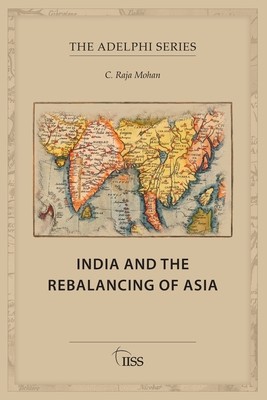
- We will send in 10–14 business days.
- Author: C Raja Mohan
- Publisher: Routledge
- ISBN-10: 1041192258
- ISBN-13: 9781041192251
- Format: 15.6 x 23.4 x 1.2 cm, mīksti vāki
- Language: English
- SAVE -10% with code: EXTRA
Reviews
Description
Few regions have transformed as consequentially as Asia in the twenty-first century. In recent decades, China has risen faster than its neighbours and today outranks its major proximate competitors - India and Japan - on economic and defence indices by huge margins. The United States' interest in balancing against China is especially significant for India, because the contradictions between New Delhi and an increasingly assertive Beijing are the sharpest in the region.
In this Adelphi book, C. Raja Mohan delineates the prospects for an Indian role in structuring a new Asian geopolitical order. Grounding his analysis in the (often neglected) evolution of modern Indian foreign and security policies from the colonial era to the twenty-first century, Mohan argues that China's rise has compelled India to discard its traditional ambivalence about Chinese power and counter Beijing by strengthening its own national power and developing partnerships with other states, primarily the US. In addition to considering potential challenges to the emerging US-India strategic relationship, the book evaluates India's likely contributions to a new Asian security, political and economic order in the light of both New Delhi's enduring regional interests and the policy changes envisioned by the second Trump administration.
EXTRA 10 % discount with code: EXTRA
The promotion ends in 22d.20:15:06
The discount code is valid when purchasing from 10 €. Discounts do not stack.
- Author: C Raja Mohan
- Publisher: Routledge
- ISBN-10: 1041192258
- ISBN-13: 9781041192251
- Format: 15.6 x 23.4 x 1.2 cm, mīksti vāki
- Language: English English
Few regions have transformed as consequentially as Asia in the twenty-first century. In recent decades, China has risen faster than its neighbours and today outranks its major proximate competitors - India and Japan - on economic and defence indices by huge margins. The United States' interest in balancing against China is especially significant for India, because the contradictions between New Delhi and an increasingly assertive Beijing are the sharpest in the region.
In this Adelphi book, C. Raja Mohan delineates the prospects for an Indian role in structuring a new Asian geopolitical order. Grounding his analysis in the (often neglected) evolution of modern Indian foreign and security policies from the colonial era to the twenty-first century, Mohan argues that China's rise has compelled India to discard its traditional ambivalence about Chinese power and counter Beijing by strengthening its own national power and developing partnerships with other states, primarily the US. In addition to considering potential challenges to the emerging US-India strategic relationship, the book evaluates India's likely contributions to a new Asian security, political and economic order in the light of both New Delhi's enduring regional interests and the policy changes envisioned by the second Trump administration.


Reviews